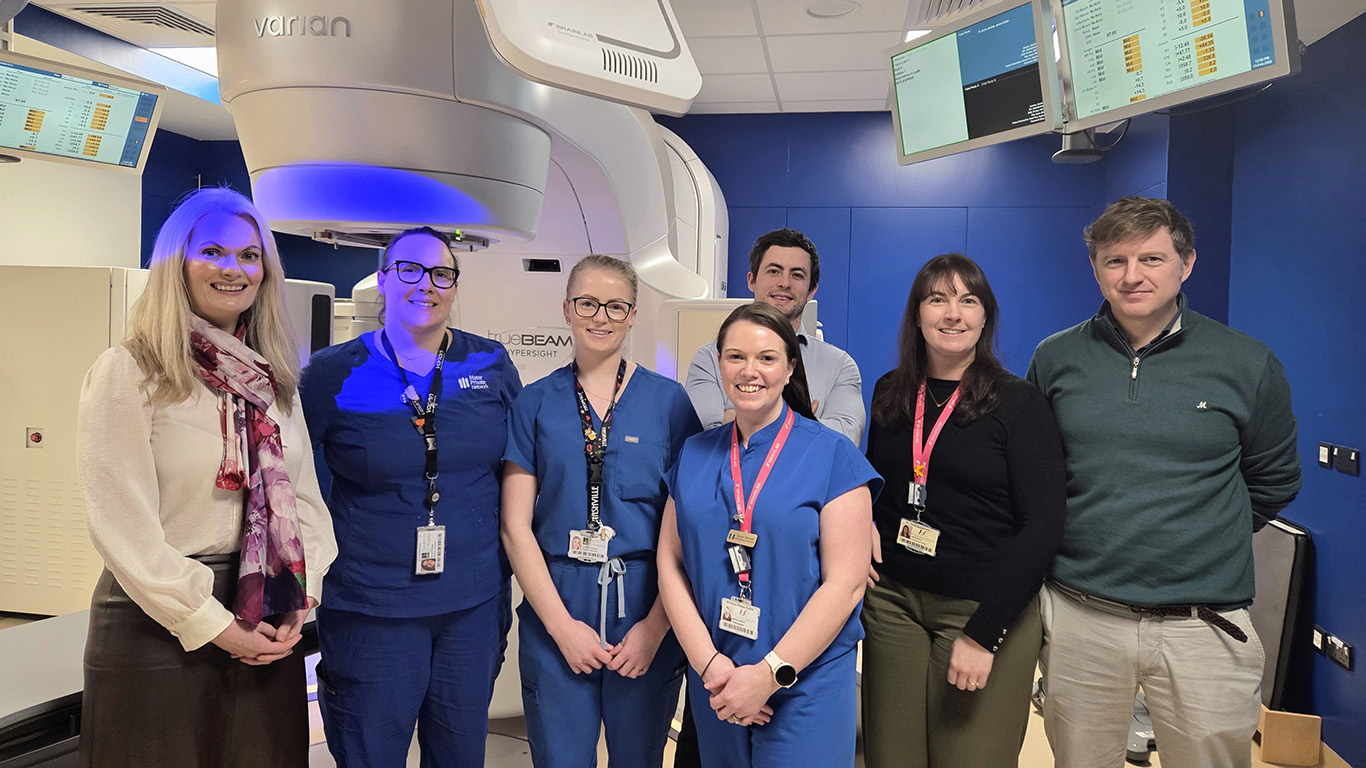23rd July 2025
Meet Padraig Harkin - Dietitian
From diagnosis to recovery, dietitians work closely with patients to ensure that their nutritional needs are met at every stage of their healthcare journey. Their expertise and practical advice help improve health outcomes and support patients’ overall well-being.
Padraig Harkin is a Dietitian at Mater Private Network in Dublin. Nearly a year into his role, Padraig brings a wealth of experience and a genuine passion for patient care. Having originally started his career in the pharmaceutical industry, he realised early on that he wanted to work more directly with people. His long-standing interest in food and nutrition led him to pursue a career in dietetics, a decision that now shapes his daily interactions with patients across a wide range of specialties.
.jpg?sfvrsn=175c043_0)
Can you please describe your role as a dietitian working in a hospital setting?
As a dietitian, I am a CORU-registered healthcare professional with a master’s degree in human nutrition and dietetics. We are the only legally regulated professionals trained to assess, diagnose, and treat dietary and nutritional concerns in both individual and public health settings.
Within the hospital, my role involves supporting patients during various stages of their care, whether they are recovering from surgery, undergoing treatment, or making long-term lifestyle changes. Every dietary plan I create is tailored specifically to the individual. I consider their medical history, current medications, blood results, weight, height, body mass index, current lifestyle, appetite, digestive patterns, and more.
What types of patients do you typically work with?
I work with a diverse group of patients, each with their own nutritional needs and challenges. For example, oncology patients are particularly vulnerable to weight loss and malnutrition. Cancer cells use more energy than healthy cells, and treatments such as chemotherapy and radiotherapy can reduce appetite or cause nausea. In these cases, I focus on guiding patients towards high-protein, high-calorie diets to help maintain strength and energy.
When working with cardiac patients, our goals shift towards promoting heart health. This often means recommending a diet lower in calories, rich in unsaturated fats, with reduced salt and sugar, and an increase in dietary fibre.
Gastroenterology patients often present other challenges. Some may have stoma bags, and in those cases, I usually recommend a temporary reduction in fibre intake, reintroducing it gradually to avoid complications.
For patients who cannot meet their nutritional needs by consuming food orally, we may need to provide artificial nutrition. One example is parenteral nutrition, where nutrients are delivered directly into the bloodstream intravenously.
How do you support patients in their journey to recovery?
A large part of my role involves helping patients better understand nutrition. Many people are unsure of what a well-balanced diet looks like or how much protein, fibre, or calories they need. Some patients are also working through emotional relationships with food, whether they are underweight, overweight, or have disordered eating habits.
In addition to education, I help patients manage practical barriers to eating. For instance, nausea and vomiting can prevent someone from eating, so we liaise with the medical team to ensure patients’ comfort is optimised. Patients with swallowing difficulties, due to a condition known as dysphagia, may need modified meals prepared in collaboration with our catering team. If that is not sufficient, we might insert a feeding tube to ensure they are receiving adequate nutrition.
For some, recovery is not curative but palliative. In these situations, my focus is on comfort, helping patients maintain energy and well-being to enjoy quality time with their loved ones and, where possible, avoid hospital re-admissions.
.jpg?sfvrsn=6521271e_0)
How do you collaborate with the wider team to deliver patient care?
Nutrition is closely linked to many aspects of health and well-being, so working with the wider multidisciplinary team is essential. If a patient struggles with cooking or food shopping at home, I liaise with our social workers, who can help arrange home support. If mobility issues are preventing someone from preparing meals, I work with physiotherapists to improve their strength and independence. When patients have swallowing difficulties, I consult with speech and language therapists to assess and manage those challenges.
I also work closely with clinical teams to understand patients' diagnoses, treatment plans, medications, and blood results. Nurses, who spend the most time with our patients, are often my first point of contact for day-to-day updates, including appetite changes, nausea, vomiting, or digestive concerns.
What’s the most rewarding part of your role?
The most fulfilling part of my role is building a strong connection with patients. Nutrition can be an emotional subject, and many people feel vulnerable when discussing their eating habits or health challenges. When a patient opens up and trusts me with their concerns, we build a strong relationship. It is incredibly rewarding to see a patient improve, whether that is gaining strength, managing symptoms more effectively, or simply feeling more in control of their health and well-being.
What is the one thing you wish people knew about nutrition?
I wish more people realise that nutrition does not need to be complicated and that all food can have a place in a healthy diet. There has been a surge of conflicting advice online, often from sources that are not regulated or professionally trained. Many patients tell me what they believe they should or should not eat based on something they read on social media. If you are looking for trustworthy advice, follow registered dietitians online or visit the Irish Nutrition and Dietetic Institute website, which is a reliable and evidence-based source of information for anyone seeking guidance.
A balanced diet is not about restriction - it is about variety, moderation, and understanding portion sizes. You can enjoy your favourite foods like ice cream, chocolate, or crisps, in moderation.










.jpg?sfvrsn=83254d5c_1)
.jpg?sfvrsn=46e22a32_1)
.jpg?sfvrsn=ec7c101c_1)
